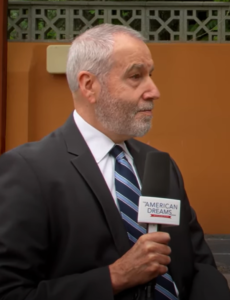Passion Investments: Why High-Net-Worth Individuals are Turning to Luxury Collecting
[vc_row][vc_column][vc_column_text]by Alan L. Olsen, CPA, MBA (Tax)
Mananging Partner
Greenstein, Rogoff, Olsen & Co.
Posted: 3/1/11
In times of economic uncertainty, bad news is good news for collectors and sellers. This uncertainty drives capital out of the stock market but at the same time, causes investments like art, wine and fine jewelry (among others) to enter the market. When typical investments are down, people sell their collectibles and when the stock market seems like a relative loser, art, wine, and fine jewelry can be great investments.
Record low bond yields and market volatility are causing investors to look elsewhere for investment opportunities. Tangible investments which yield a decent long-term return and provide enjoyment are becoming increasingly popular. These “passion investments” are typically rare, luxury items that the investor is passionate about owning and enjoying – from fine art to yachts.
The Capgemini and Merrill Lynch World Wealth Report 2010 found that high-net-worth individuals are returning to passion investment as “investor-collectors”, seeking out those items that are perceived to have tangible long-term value. According to the report, the two categories found to be the most attractive were art and “other collectibles” such as coins, antiques or wines.
Aside from the enjoyment of securing the ultra rare collectible piece, these long-term investments are proving to be a good way to diversify a portfolio:
During the first half of 2010 the Mei Moses All Art Index which tracks auction prices gained 13.5% compared with a 6.5% fall in the S&P500 index during the same period.
The Liv-ex Fine Wine Investables index, which tracks the price of fine wines from 24 chateaux in Bordeaux, was up 27.2% from the beginning of 2010 to the end of August.
In the first quarter of 2010, yacht brokerages closed nearly 30% more sales than a year earlier, with a 70% increase in valuation, according to a survey by UK broker Yachtworld.com.
As long as the financial environment remains uncertain, demand for tangible assets is likely to increase.
Tax Implications
Collectibles are taxed in two different tax brackets:
Short-Term Collectible Capital Gains Tax Rates: Collectibles held less than one year are taxed at personal income tax rates, just like short-term capital gains taxes on stocks or bonds.
Long-Term Collectible Capital Gains Tax Rates: Collectibles held one year or longer are taxed at 28%.
The IRS defines collectibles as:
• Stamps • Fine Art
• Coins • Precious Metals (Including Coins)
• Alcoholic Beverages (Like Fine Wine) • Precious Gems
• Rare Rugs • Antiques
For additional information please see our article Calculating Capital Gains Tax on the Sale of a Collectible at www.GROCO.com or contact Alan L. Olsen, CPA, MBA (Tax), Managing Partner of Bay Area CPA firm Greenstein, Rogoff, Olsen & Co., LLP at 510-797-8661.[/vc_column_text][/vc_column][/vc_row]
2X Wealth Group: Investment Management Catered to Women | Lori Zager
“2X Wealth Group: Investment Management Catered to Women”, Lori Zager Transcript, Interview by Alan Olsen, Host of The American Dreams Show: Alan Olsen: Welcome back. I’m here today with Lori Zager. She is the co founder of the 2X Wealth Group which is a subsidiary of Ingalls & Snyder. Lori, welcome to today’s show. …
John Hoffmire
Transcript of John Hoffmire: Alan Olsen: One of the areas that you’ve been involved with is impact investing, what is impact investing? John Hoffmire: Well, impact investing can be defined as a number of different ways. I’m going to define it in the broadest possible way, where investments of almost all types make an…
Add These Leadership Skills for 2021
As we begin to exit the pandemic, are you looking to grow or enhance your leadership skills this year? If so, it is vital to have a plan as no one can expect to become a better leader just by showing up every day. Here are some important things to focus on in 2021. These leadership…
Workplace Accountability in Four Steps
Have you encountered a co-worker, boss or employee, who slacks off, unloads their work onto others, or takes credit for work and ideas that are not their own? Accountability in the workplace can often seem a bit too scarce, especially when the competitive drive kicks in. Or perhaps, someone that works hard, but never seems…




